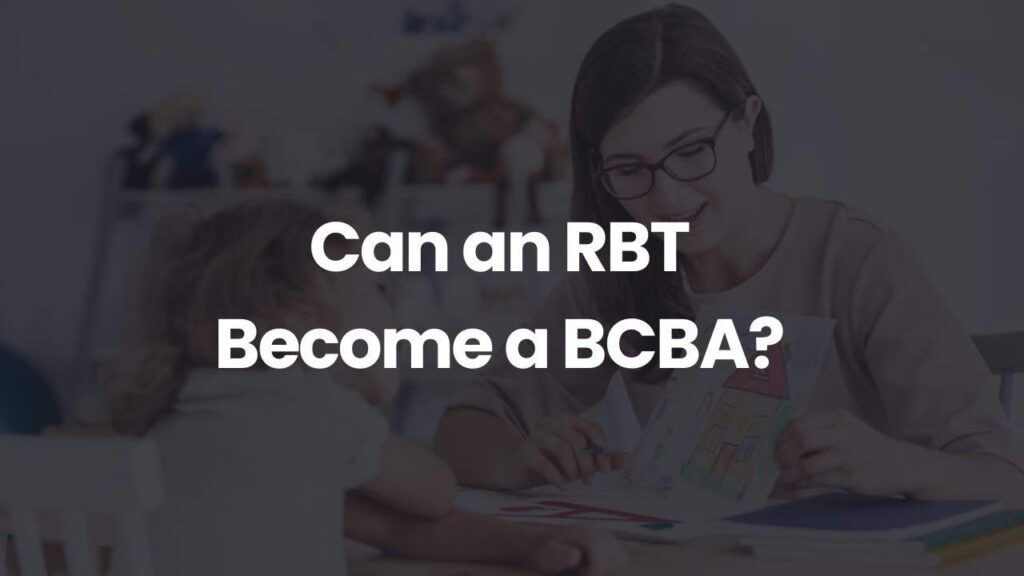As a board-certified behavior analyst (BCBA), you’ll have more autonomy in creating treatment plans, supervising RBTs, and making impactful decisions in the field of behavior analysis.
If you’re working as an RBT but want to become a BCBA for better opportunities, higher pay, and greater career satisfaction, this is the right guide for you.
In this guide, you’ll learn all the requirements and steps to become a board-certified behavior analyst (BCBA) and get a chance to make a bigger impact in the field of applied behavior analysis (ABA).
Can An RBT Become A BCBA?
Absolutely, an RBT can become a BCBA by completing the right education, coursework, and certification. In fact, it’s a great idea to get an RBT certification while completing your master’s degree in the behavior analysis field.

How RBTs Can Become BCBAs?
The role of RBTs is to implement behavior intervention plans under the supervision of BCBA or BCaBA. If a registered behavior technician wants to become a BCBA, he/she needs to meet the educational requirements and behavior-analytic coursework and pass the BCBA certification exam conducted by the Behavior Analyst Certification Board (BACB).
Educational Requirements:
Obtain a graduate degree (master’s or higher) from an institution that meets specific accreditation standards. The degree should be in behavior analysis or a closely related field.
Coursework Requirements:
Complete specific graduate-level coursework in behavior analysis. This coursework must cover various topics, including basic behavior-analytic skills, client-centered responsibilities, foundational knowledge, and BACB compliance standards.
The coursework must be taken from an institution offering a Verified Course Sequence (VCS) or a program meeting the BACB’s accreditation standards.
Fieldwork Requirements:
Complete a defined amount of supervised fieldwork. There are two main types of fieldwork:
- Supervised Fieldwork: Requires 2,000 hours.
- Concentrated Supervised Fieldwork: Requires 1,500 hours.
The fieldwork must be supervised by a BCBA who meets specific qualifications set by the BACB. This practical training must involve developing and implementing behavior-analytic interventions and conducting behavioral assessments, among other responsibilities.
Pass the BCBA Examination:
After completing the educational and fieldwork requirements, candidates must pass the BCBA examination, which tests knowledge in behavior analysis practices and principles.
Conclusion
The RBTs are paraprofessionals who directly interact with clients and implement the behavior intervention plans (BIPs) designed by the BCBA. The RBTs can also get BCBA certification by meeting all the requirements of BACB. We hope you found this guide helpful. Please give your valuable feedback in the comment box.

Given the limited training and supervision requirements for RBT certification, can RBTs truly handle the challenging behaviors that often accompany autism spectrum disorder, or should additional education and support be mandated for these professionals?”,
“refusal